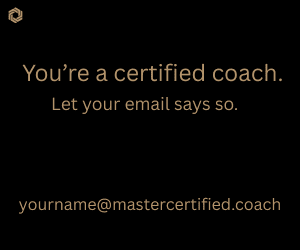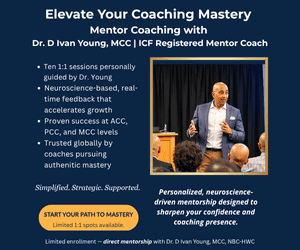There are many reasons why we get angry or upset with other people; however, a careless reaction can result in long-term consequences to the relationship or your reputation. Once the words are released, they can’t be recovered.
Most of us wish we could go back in time to redo at least one conversation. I, personally, have had more of these than I would like to admit. Fortunately, time and wisdom have taught me some valuable lessons about how to engage with others more peacefully. I have found that the following four steps have greatly improved my ability to communicate with integrity, even with difficult people:
- Stay calm;
- Slow things down;
- Keep the other person’s perspective in mind; and
- Focus on the long-term relationship.
Speak when you are angry and you will make the best speech you will ever regret.
~Ambrose Bierce
1. Stay Calm
If you anticipate a difficult meeting, take a few minutes to calm yourself in advance. This technique is called centering and it does exactly what it says—it helps you find your center so that you can be in your most resourceful frame of mind.
One of the simplest ways to stay calm and focused is to practice abdominal breathing; it’s as simple as spending a few minutes paying attention to your breath. I recommend abdominal breathing because it helps you get more oxygen into your body, gives you something to focus on and slows your heart and breathing rates. This in turn helps you to be calmer and more focused during your meeting. Although it takes a bit of practice in the beginning, it will soon feel natural and effortless.
Abdominal Breathing
- Sit up tall with one hand on your navel, the other on your knee
- Relax your belly
- Close your eyes
- Inhale deeply through your nose so that the hand over your navel is pushed outward (your belly should swell like a balloon)
- Exhale deeply through your nose and notice how your navel comes back in towards your spine
- Relax your belly even more
- Breathe deeply without forcing the breath
- Continue for a few minutes
When you get good at abdominal breathing, you can use the technique at any time to calm yourself down and improve your focus
When Centering Does Not Work
Sometimes abdominal breathing isn’t enough to calm you down. You may need to do something active. A brisk walk or other exercise can help to release strong emotions. Another option is to talk with a coach or a person trained to help you get clear on what you need to say, and how to say it, in the most productive manner.
2. Slow Things Down
It has happened to most of us. After being caught off-guard, we notice that we are speaking without considering the consequences. If you find yourself in this situation, slow things down as soon as possible. Name what has happened and take a moment to re-center yourself. You can say:
“You have caught me by surprise. Can we take a moment to step back, calm down, and start from a fresh perspective?”
or
“Let’s keep the language professional. Maybe we should take a time-out and calm down before we proceed.”
Sometimes you need more than a moment.
“Can we take a time-out and meet again later today or tomorrow after I have thought about what you said?”
3. Consider the Other Person’s Perspective
When taking another person’s perspective, you imagine what life is like from the other person’s point of view. It’s like walking in their shoes. It helps you gain valuable insights into how the other person sees the world.
Taking the other person’s perspective is especially useful in situations in which you feel frustrated or out of options. It can help you understand the underlying issues better and be more compassionate in your approach.
Before responding, take a moment to see yourself, and the situation, through the eyes of the other person and ask yourself:
“How does the other person perceive me or the situation?”
“What is important to the other person?”
“What does this person need?”
“What is driving him or her to behave this way?”
4. Consider the Long-Term Relationship
Every discussion you have with the other person sets the stage for your future relationship. Be sure to engage in a manner that builds the relationship rather than trying to be right or win the argument.
Summary
It’s normal to get upset from time to time. When this happens, take a moment to center yourself. If this is not enough, request a time-out to calm down and get yourself prepared for a more productive conversation at a later time. Before responding, ask yourself what the other person might be thinking. You will communicate more compassionately if you can understand what the other person’s needs are. Finally, always remember that relationships are built one conversation at a time. Make choices that build the kind of relationship you want in the future.
Disclaimer
The views and opinions expressed in guest posts featured on this blog are those of the author and do not necessarily reflect the opinions and views of the International Coach Federation (ICF). The publication of a guest post on the ICF Blog does not equate to an ICF endorsement or guarantee of the products or services provided by the author.
Additionally, for the purpose of full disclosure and as a disclaimer of liability, this content was possibly generated using the assistance of an AI program. Its contents, either in whole or in part, have been reviewed and revised by a human. Nevertheless, the reader/user is responsible for verifying the information presented and should not rely upon this article or post as providing any specific professional advice or counsel. Its contents are provided “as is,” and ICF makes no representations or warranties as to its accuracy or completeness and to the fullest extent permitted by applicable law specifically disclaims any and all liability for any damages or injuries resulting from use of or reliance thereupon.
Authors
Post Type
Blog
Audience Type
Coach Educators, Experienced Coaches, External Coaches, ICF Chapter Leaders, Internal Coaches, New Coaches, Professional Coaches, Team and Group Coaches
Topic
Coaching Toolbox, Discover - Your Coaching Career
Related Posts
The Power of Active Listening in Meaningful Coaching: Why Active Listening is the Most Essential Coaching Competency
Of all the foundational coaching competencies identified by the International Coaching Federation…
Allyship in Action: Coaching as a Catalyst for Change
Allyship is often framed as a value or an intention. In practice,…
Grace Under Fire: Building Stress Resilience for Coaches and High Achievers
There’s a unique kind of pressure that lives at the intersection of…







